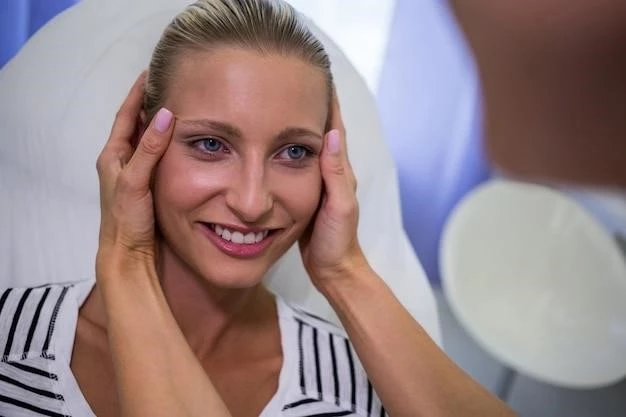Introduction to Rhytiphobia
Rhytiphobia is an intense fear of getting wrinkles‚ often associated with a fear of aging or a loss of attractiveness and youth․ The term originates from the Greek words ‘rhyti’ meaning wrinkle and ‘phobia’ meaning fear․
Definition and Overview
Rhytiphobia is defined as an irrational fear of wrinkles‚ often linked to a deep-seated fear of aging‚ loss of attractiveness‚ or youth․ This phobia can lead individuals to extreme anxiety and avoidance behaviors‚ impacting their quality of life and self-esteem․ The term ″rhytiphobia″ stems from the Greek words ″rhyti‚″ meaning wrinkle‚ and ″phobia‚″ meaning fear․ Individuals experiencing rhytiphobia may exhibit avoidance of social situations and may benefit from professional intervention to address this specific fear;
Understanding Rhytiphobia
Rhytiphobia‚ derived from the Greek words for ″wrinkle″ and ″fear‚″ is characterized by an intense dread of developing wrinkles and an associated apprehension of aging‚ attractiveness decline‚ and losing youthfulness․ This phobia can result in significant distress and avoidance behaviors․
Symptoms and Manifestations
Individuals with rhytiphobia may exhibit symptoms such as extreme anxiety‚ panic attacks‚ and obsessive thoughts about developing wrinkles․ This fear can lead to avoidance of mirrors‚ skincare routines bordering on obsession‚ and reluctance to engage in social activities where aging signs may be highlighted․ Physical manifestations can include increased heart rate‚ sweating‚ and trembling when faced with stimuli related to wrinkles or aging․ These symptoms can significantly impact an individual’s well-being and daily functioning․
Causes and Triggers
The causes of rhytiphobia can be multifaceted‚ stemming from societal pressures emphasizing youth and beauty‚ personal experiences related to aging or body image‚ or even genetic predispositions towards anxiety disorders․ Triggers for rhytiphobia may include exposure to images or discussions about aging‚ witnessing the effects of aging on loved ones‚ or experiencing personal changes in skin texture that intensify the fear of wrinkles․ Understanding these causes and triggers is crucial in addressing and managing rhytiphobia effectively․
Impact on Mental Health
Rhytiphobia can have a profound impact on mental health‚ leading to increased levels of anxiety‚ depression‚ and low self-esteem․ Individuals experiencing this phobia may be overly preoccupied with their appearance‚ leading to distress and impairment in daily functioning․ The fear of wrinkles and aging can also result in social withdrawal‚ avoidance of situations where aging signs may be noticed‚ and difficulty in maintaining interpersonal relationships․ Addressing the mental health implications of rhytiphobia is crucial for overall well-being and quality of life․
Diagnosis of Rhytiphobia
Rhytiphobia can be diagnosed based on the individual’s intense fear of wrinkles‚ preoccupation with aging signs‚ avoidance behaviors related to appearance‚ and the impact of these fears on daily functioning and mental well-being․ Seeking professional assessment is essential for an accurate diagnosis and appropriate intervention․
Recognizing the Phobia
Recognizing rhytiphobia involves identifying the individual’s excessive fear of developing wrinkles‚ persistent concerns about aging signs‚ and the impact of these fears on daily life and mental well-being․ Observing avoidance behaviors related to appearance and seeking professional evaluation can aid in recognizing and addressing this phobia effectively․
Seeking Professional Help
Seeking professional help for rhytiphobia is crucial in addressing the fear of wrinkles and its impact on mental well-being․ A mental health professional can provide a comprehensive evaluation‚ offer therapy options tailored to phobia treatment‚ such as cognitive-behavioral therapy‚ and suggest coping strategies to manage fears effectively․ Through therapy and support‚ individuals can work towards overcoming rhytiphobia and improving their quality of life․
Treatment Options for Rhytiphobia
Various treatment options for rhytiphobia include cognitive-behavioral therapy‚ exposure therapy‚ and medication along with alternative therapies․ These approaches aim to help individuals manage their fear of wrinkles effectively and enhance their overall well-being․
Cognitive-Behavioral Therapy
Cognitive-behavioral therapy (CBT) is a common and effective treatment for rhytiphobia․ This therapy helps individuals identify and challenge negative thought patterns related to wrinkles and aging‚ gradually exposing them to these fears in a controlled manner․ By modifying distorted beliefs and learning coping strategies‚ individuals can reduce anxiety levels and improve their overall quality of life․
Exposure Therapy
Exposure therapy is a treatment approach for rhytiphobia that involves gradually exposing individuals to their feared stimuli‚ such as wrinkles or aging signs‚ in a controlled and safe environment․ Through repeated exposure‚ individuals can learn to confront and manage their fears‚ leading to a reduction in anxiety levels and a greater sense of control over their phobia․
Medication and Alternative Therapies
In cases where rhytiphobia causes severe distress‚ a mental health professional may consider prescribing anti-anxiety medications or antidepressants to help manage symptoms․ However‚ medication is often used in conjunction with therapeutic interventions like cognitive-behavioral therapy for a comprehensive treatment approach․ Additionally‚ alternative therapies such as mindfulness meditation‚ yoga‚ or relaxation techniques may complement traditional treatments in addressing the fear of wrinkles and its associated anxieties․

Coping Strategies for Rhytiphobia
Rhytiphobia sufferers can adopt coping strategies like mindfulness meditation‚ yoga‚ relaxation techniques‚ and maintaining a healthy skincare routine to manage anxiety related to wrinkles․ Engaging in self-care practices and positive affirmations can also help individuals deal with their fear effectively․
Self-Help Techniques
Individuals with rhytiphobia can benefit from self-help techniques like mindfulness meditation‚ relaxation exercises‚ maintaining a positive self-image‚ and practicing self-compassion․ These techniques can empower individuals to manage their fear of wrinkles and aging‚ promoting a sense of control and well-being․
Lifestyle Changes
Individuals with rhytiphobia can implement lifestyle changes such as incorporating a balanced skincare routine‚ staying hydrated‚ eating a healthy diet rich in antioxidants‚ practicing stress-reducing activities like yoga or meditation‚ and engaging in regular physical exercise․ These lifestyle modifications can complement other treatment methods and contribute to overall well-being by promoting skin health and reducing anxiety related to aging signs․

Support Systems and Resources
Individuals struggling with rhytiphobia can find support through various resources‚ including support groups that offer a safe space to share experiences and coping strategies․ Online communities and helplines can also provide valuable guidance and assistance for those managing the fear of wrinkles and aging․ Seeking support is an essential step towards overcoming rhytiphobia and improving mental well-being․
Support Groups
Support groups can be valuable resources for individuals dealing with rhytiphobia‚ providing a safe environment to share experiences‚ receive peer support‚ and learn coping strategies․ These groups offer a sense of community and understanding‚ fostering emotional well-being and empowerment in managing the fear of wrinkles and aging․
Online Communities and Helplines
Online communities and helplines can be valuable sources of support for individuals facing rhytiphobia․ These platforms offer a space to connect with others experiencing similar fears‚ access information‚ and receive guidance from professionals․ Engaging with online communities and helplines can provide individuals with additional tools and encouragement to manage their phobia effectively․
